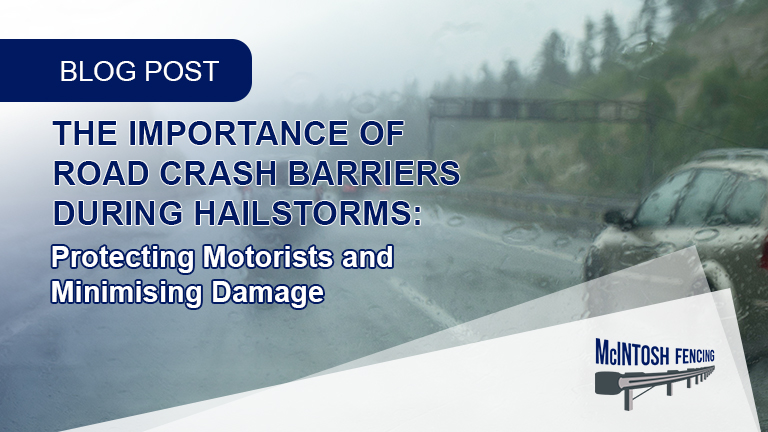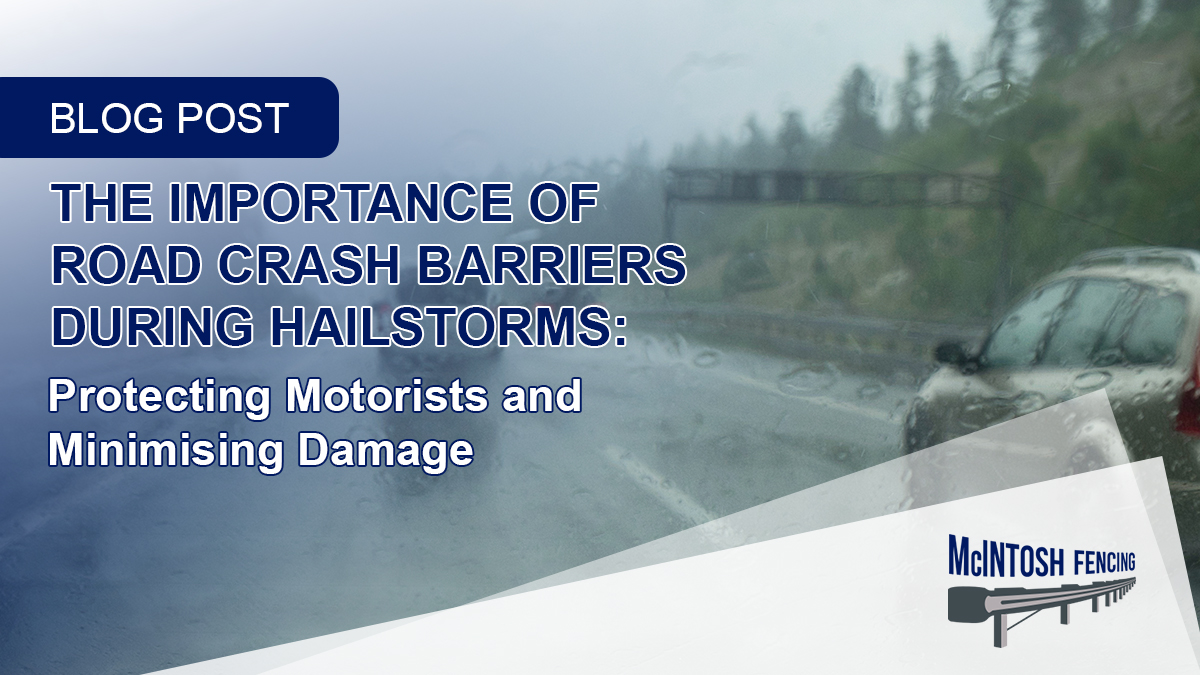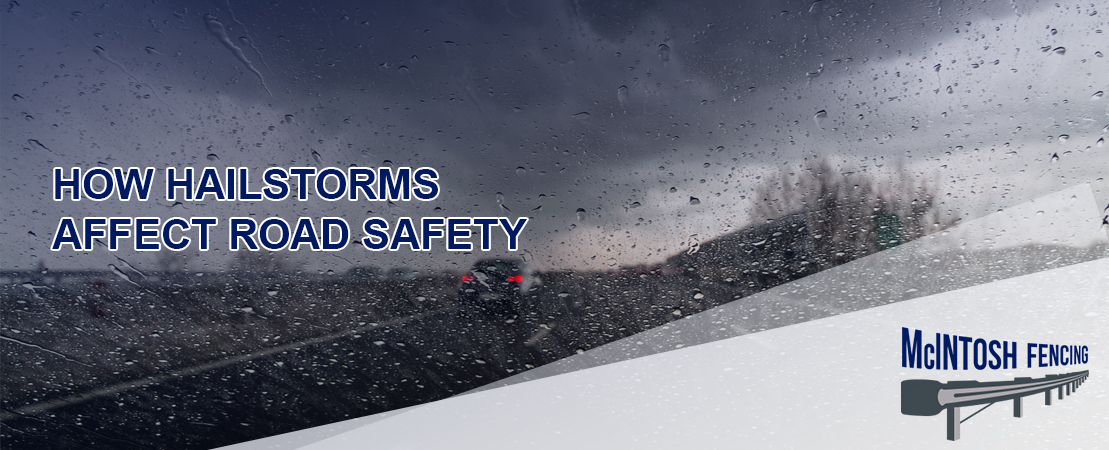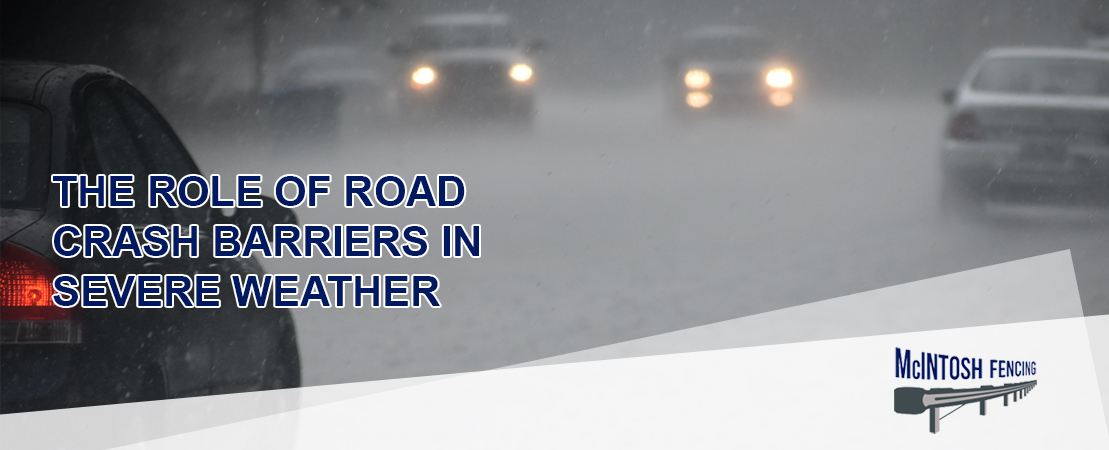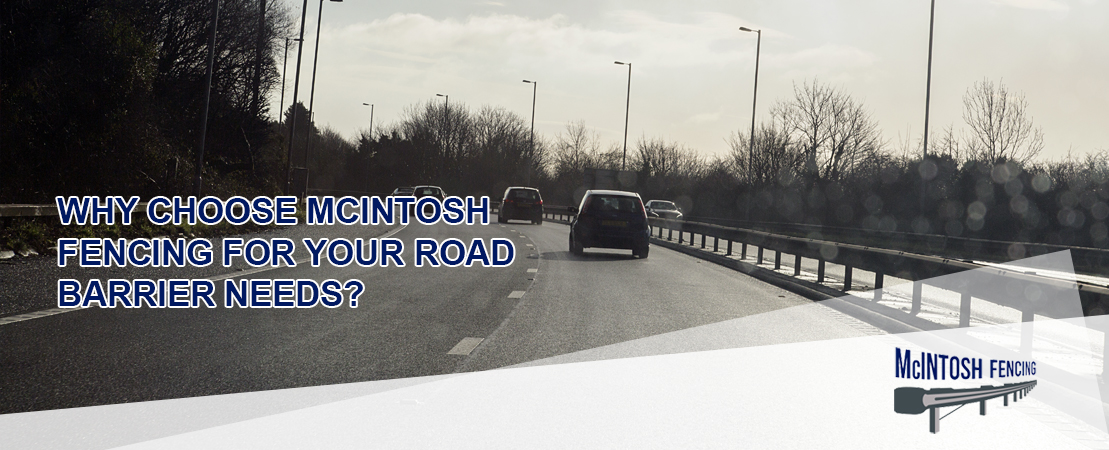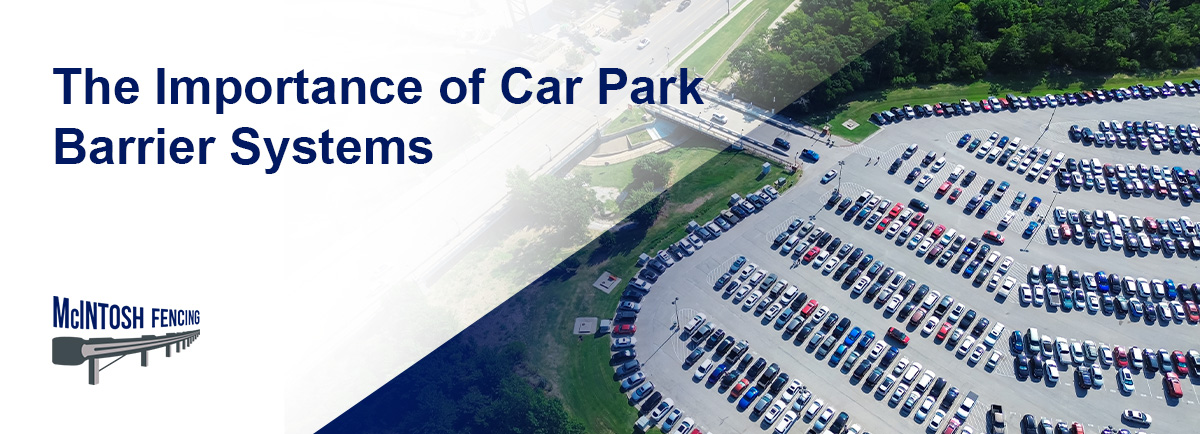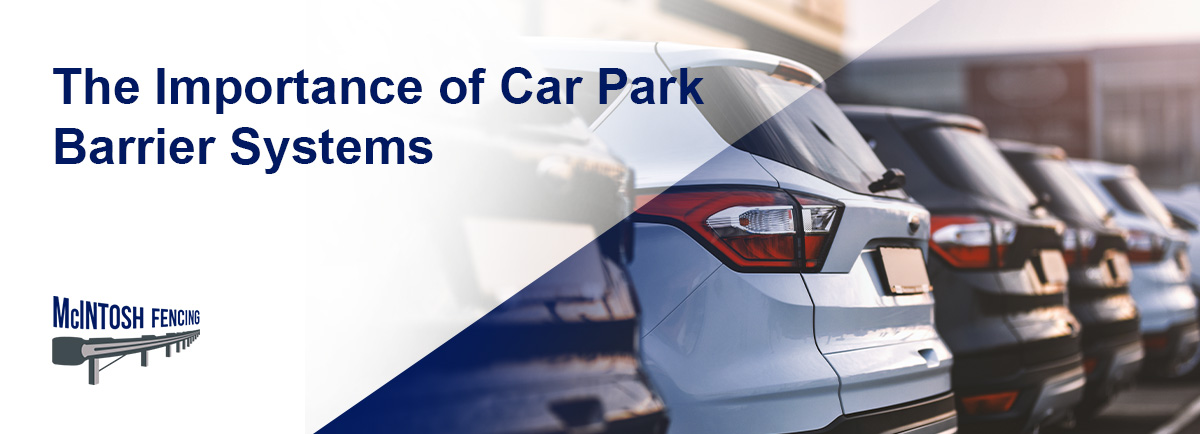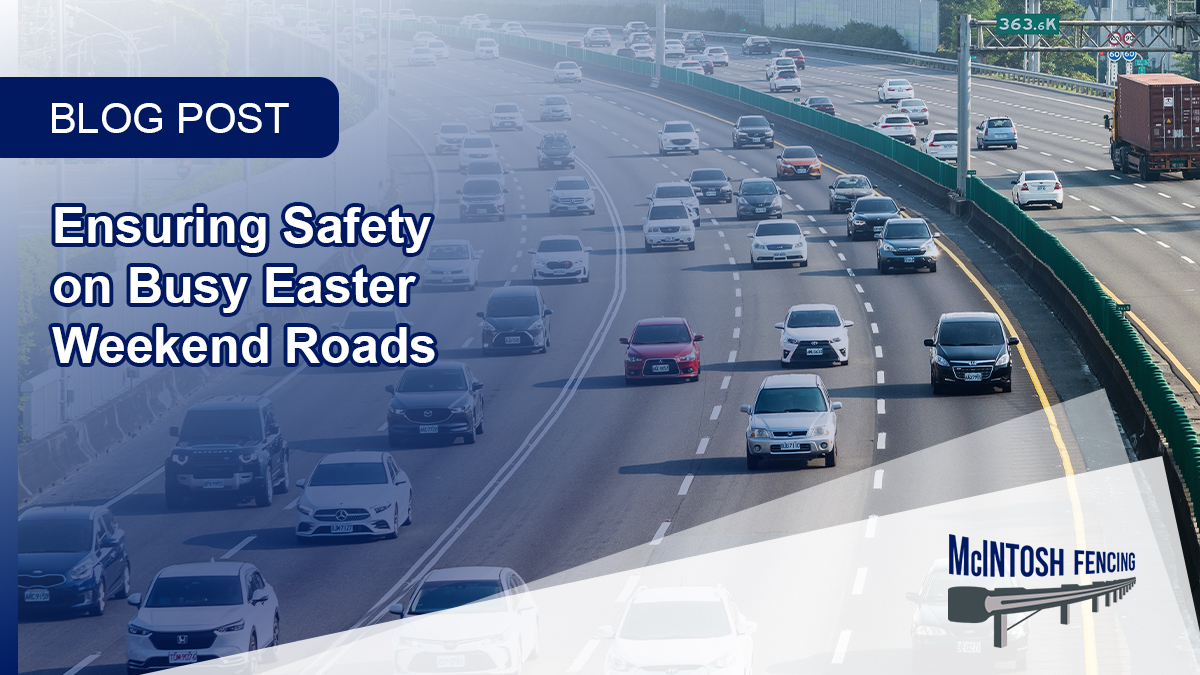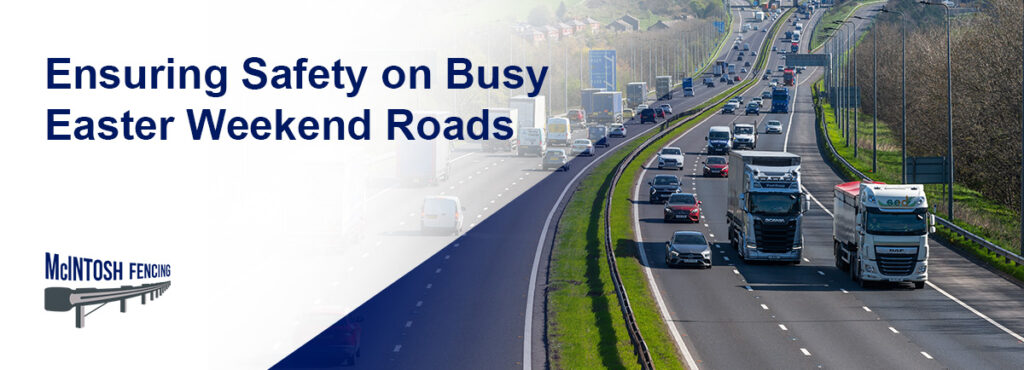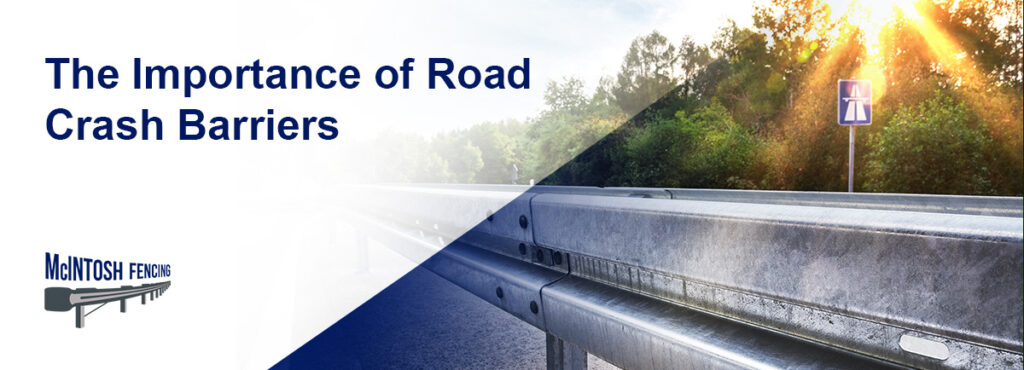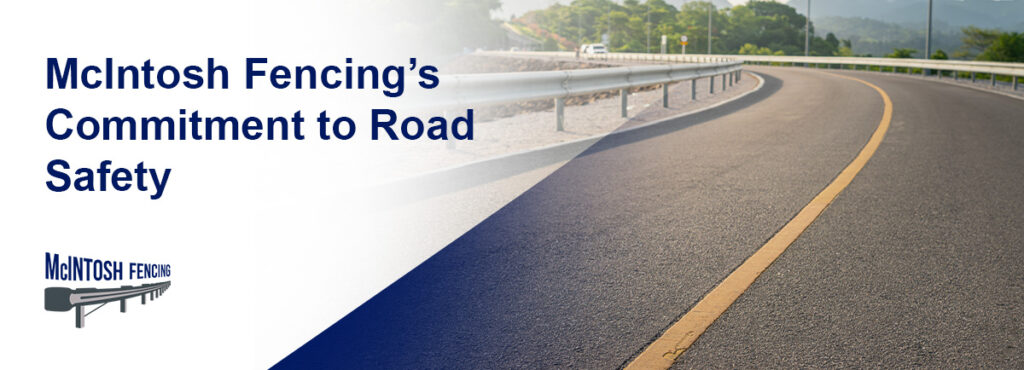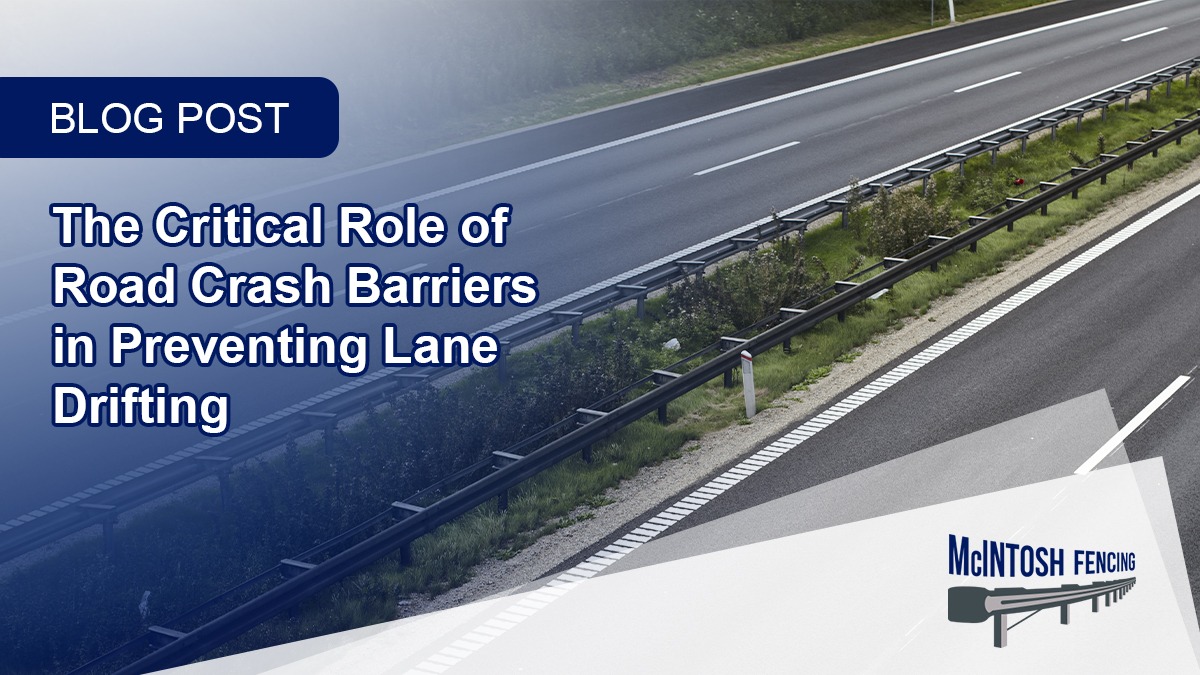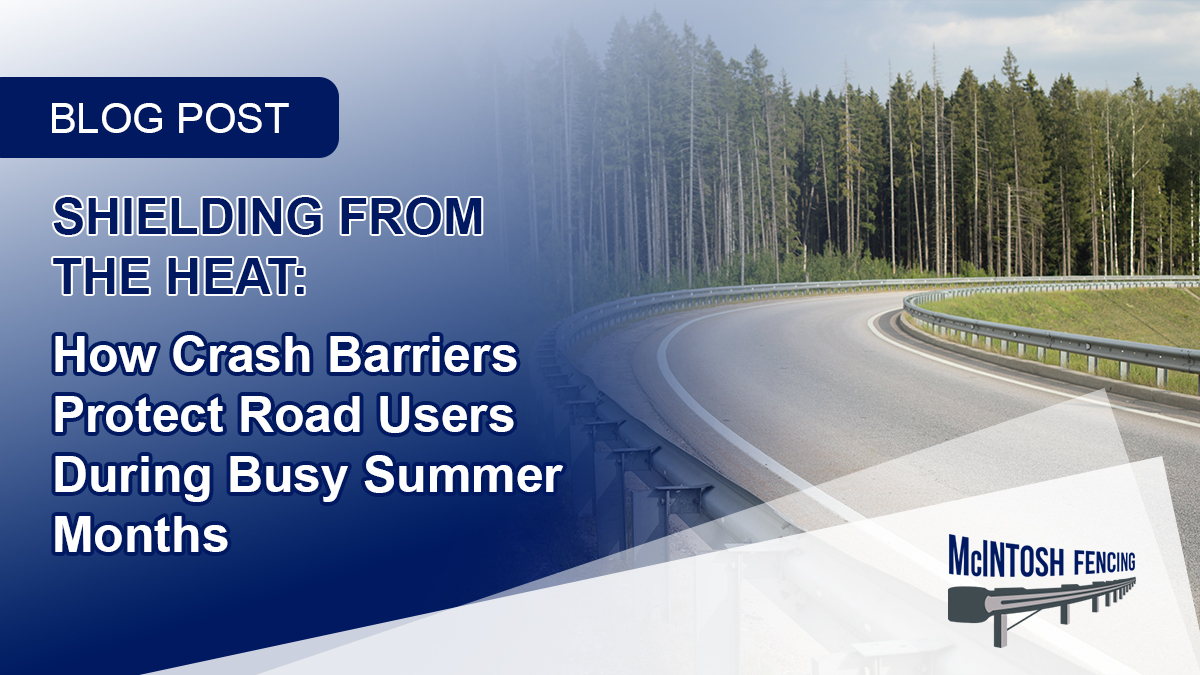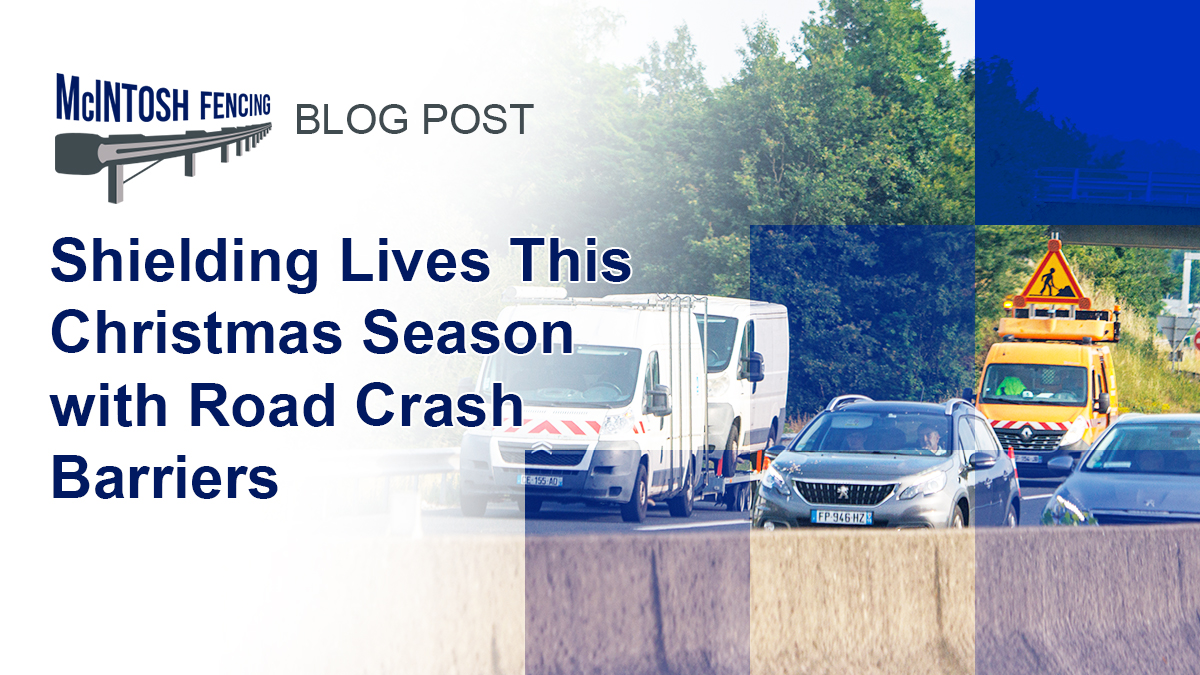Designing for Safety: How Road Crash Barriers Are Tailored for Different Road Types
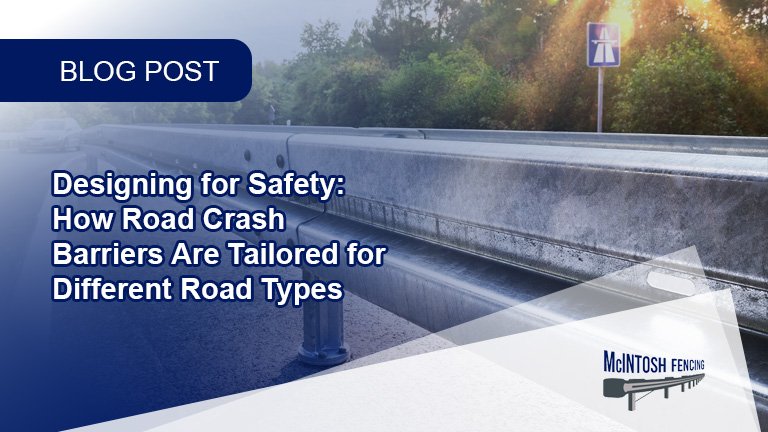
Not all roads are the same, and neither are the barriers designed to keep them safe. From high-speed highways to winding rural roads, each environment requires a unique approach to crash barrier design to maximise safety and efficiency.
At McIntosh Fencing, we understand that a one-size-fits-all approach doesn’t work when it comes to road safety. That’s why we tailor our road crash barriers to suit the specific conditions of different road types, ensuring optimal protection where it’s needed most.
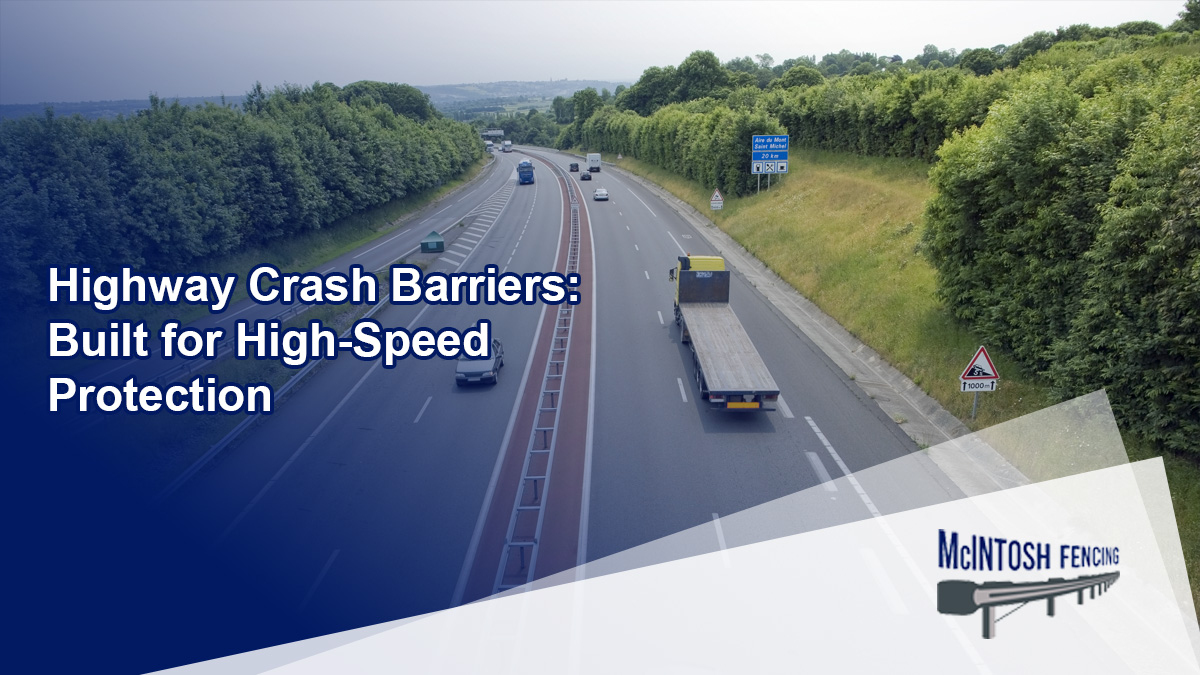
Highways experience fast-moving traffic, making it essential for barriers to provide high-impact resistance to prevent vehicles from crossing into oncoming lanes or veering off the road. The most common types of barriers used on highways include:
- W-Beam Guardrails: A strong, flexible steel barrier designed to absorb impact and redirect vehicles safely.
- Concrete Barriers: Used in high-risk areas such as medians or bridge edges, offering maximum durability and stopping power.
- Cable Barriers: A cost-effective option that absorbs kinetic energy and prevents severe crashes while minimising vehicle damage.
On highways, barriers must also be designed to prevent secondary collisions, ensuring that vehicles remain controlled after impact rather than rebounding into traffic.
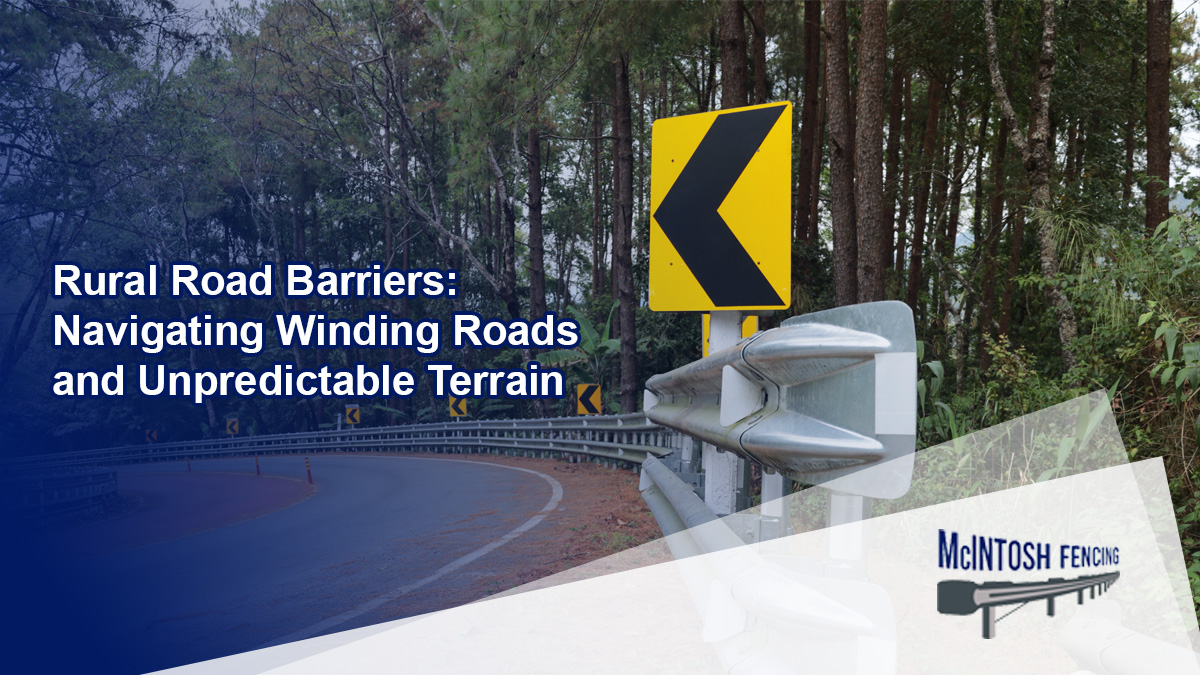
Rural roads present unique challenges, such as narrow lanes, tight curves, and unpredictable wildlife crossings. Unlike highways, rural roads often lack wide shoulders, increasing the risk of vehicles running off the road. Effective crash barrier solutions for these roads include:
- Flexible Steel Barriers: Absorb impact while preventing vehicles from rolling down embankments or crashing into trees.
- Guardrails with Enhanced Reflectivity: Ensure visibility in low-light conditions, a common issue in rural settings.
- Wire Rope Safety Barriers: Useful for preventing head-on collisions on winding roads while reducing the severity of crashes.
By implementing these tailored safety solutions, rural road barriers help protect drivers from unexpected obstacles and dangerous roadside conditions.
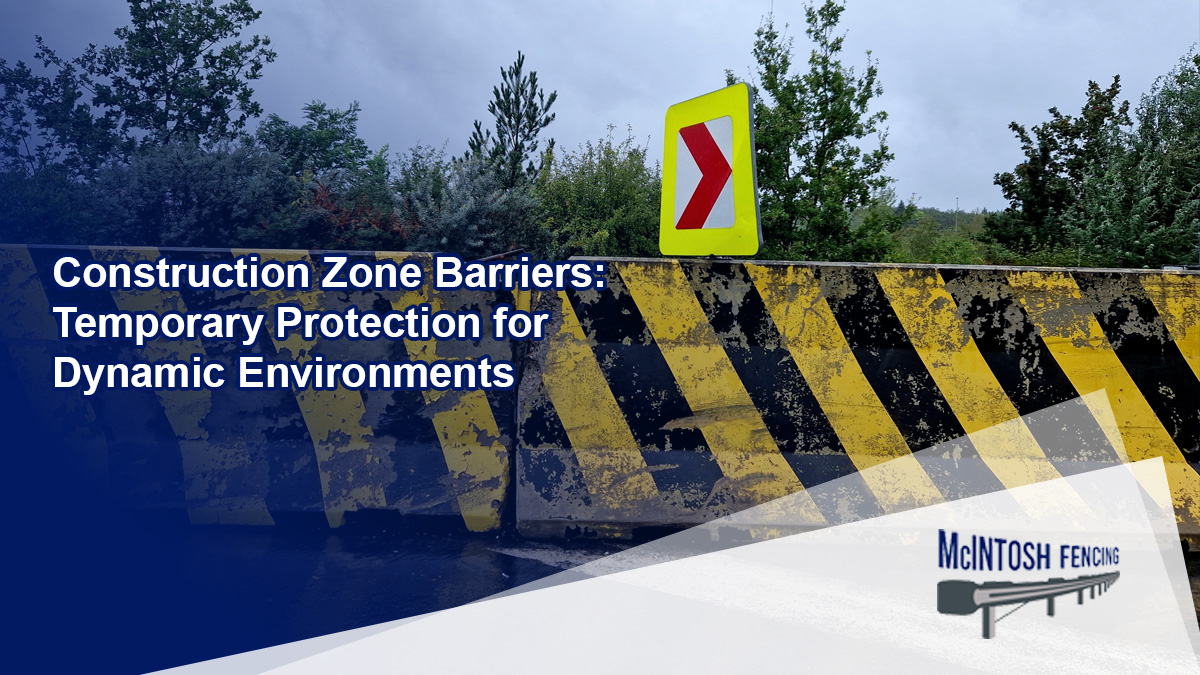
Construction zones are constantly changing, making temporary and highly visible crash barriers essential. These areas pose risks such as sudden lane shifts, heavy equipment movement, and reduced space for traffic. Safety solutions include:
- Concrete Jersey Barriers: Provide a strong physical barrier to separate traffic from work areas.
- Water-Filled Barriers: A portable and effective option that enhances visibility and absorbs impact.
- Temporary Guardrails: Offer flexibility and quick installation while maintaining safety standards.
Ensuring proper barrier placement in construction zones prevents accidents, safeguards workers, and helps keep traffic moving smoothly despite ongoing roadwork.
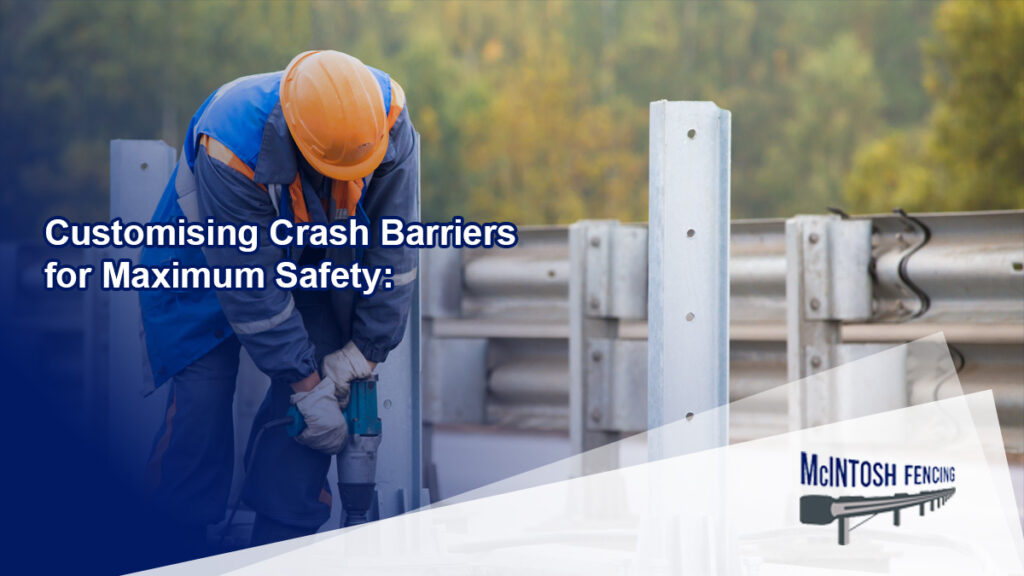
Every road type presents different challenges, which is why crash barriers must be designed and installed with precision to meet the specific safety requirements of each environment.
That’s why McIntosh Fencing specialises in designing and installing road crash barriers that are tailored to each unique road condition, ensuring safety for all road users
If you’re looking for expert advice on road safety barriers, contact McIntosh Fencing today to learn more about our customised solutions.

